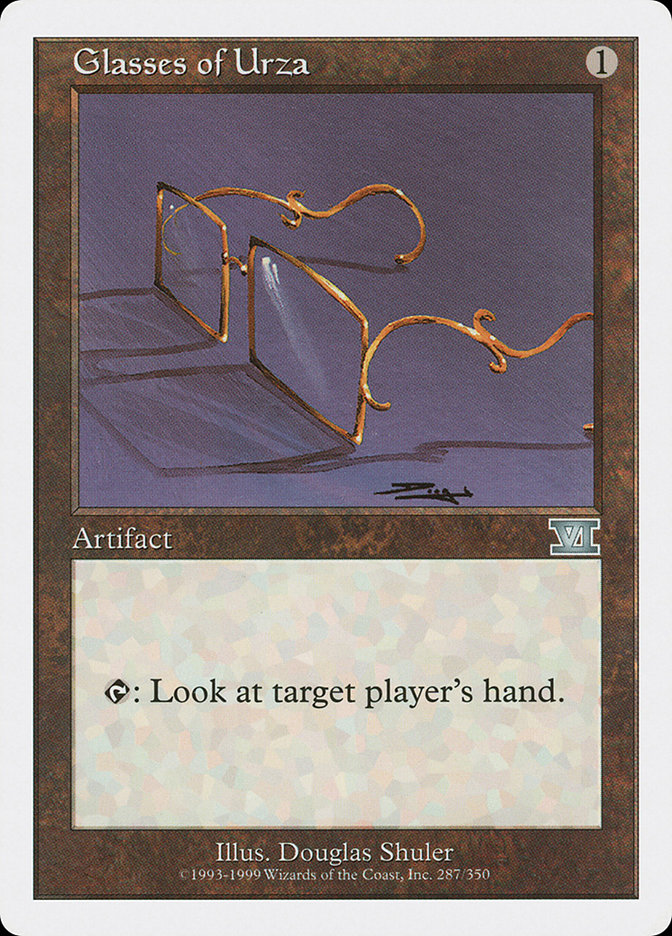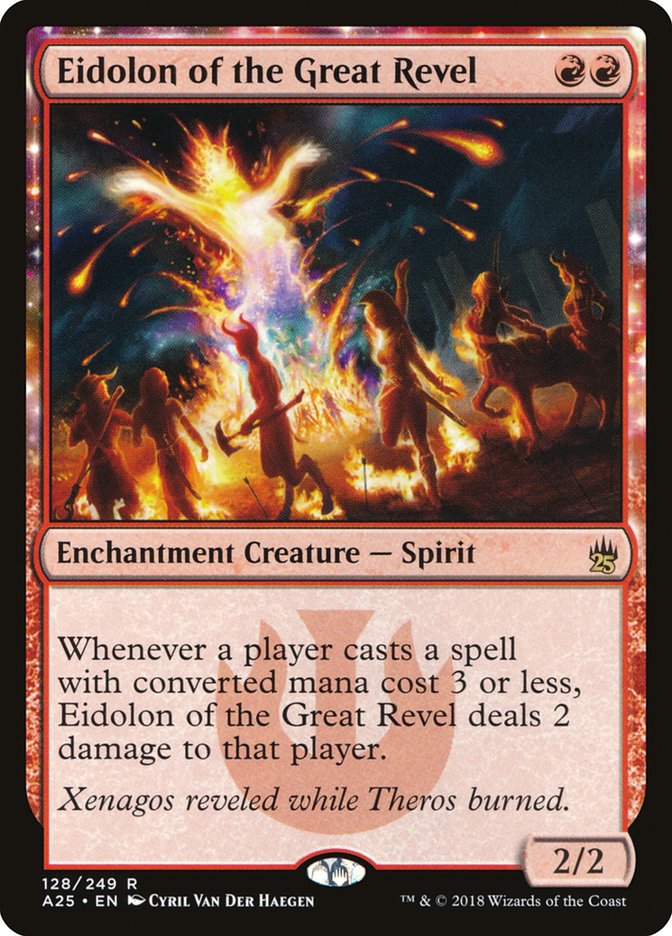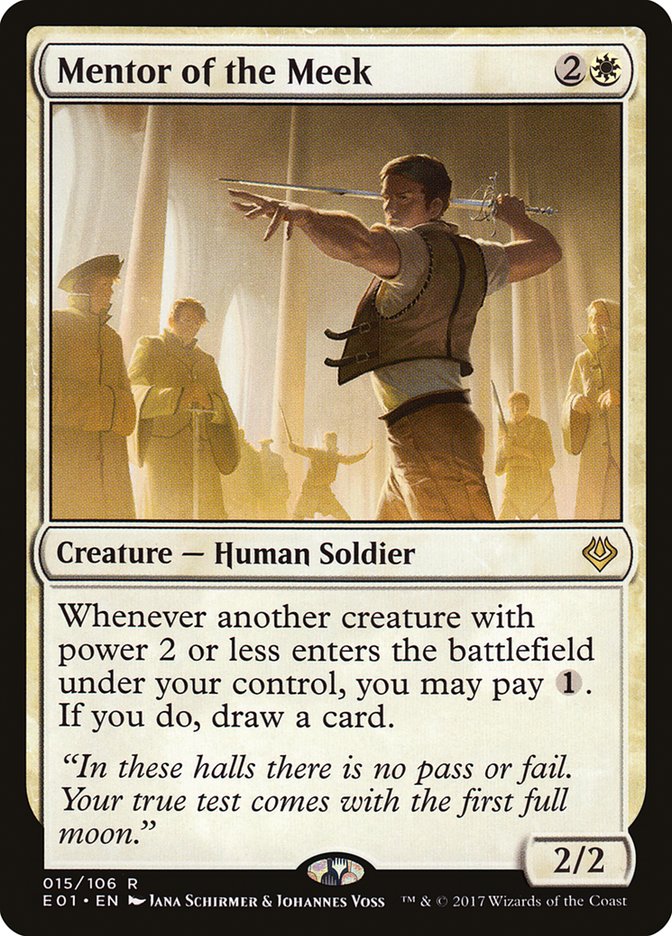Road trips. They can be the best and the worst part of traveling to a Magic
tournament. While the trek home after a long weekend of battling can be
very draining, sometimes being stuck in a car with four of your best
friends can lead to some crazy adventures and some awesome conversations.
My trip back from SCG Louisville was a prime example of this. We definitely
had our fair share of crazy adventures on our trip home, which included
Jeremy Bertarioni sticking his head out of the window going 85 mph down the
highway, having his glasses fly off, and the inevitable rescue mission that
followed, resulting in the safe return of his glasses unscathed.
But another thing that these long trips also lead to is a lot of
fascinating conversations about our weekend. One of the things I love about
my group of friends is that we’re always willing to take the deep dive on
talking about things that happened during the weekend that we weren’t sure
we handled in the best way. Taking a situation from the weekend and opening
it up to the floor for everyone to hear and chime in on has been an
excellent way for all of us to learn from each other.
A lot of the time, these situations have to do with the game of Magic,
because that is generally our primary focus for the weekend. So we talk
about interesting situations that came up for us, and what we decided to do
in the moment. And the beautiful thing that happens is that we get to hear
the perspectives of everyone else in the car. We get to see if the plays
that we made were likely correct, or if there may have been better lines
that we didn’t think about.
This is an awesome exercise that I recommend everyone should try out. I
think it’s one of the best ways that you can learn from your peers. One of
the reasons I think these conversations are so great is because through
these conversations with your friends, you can really dig into why they believe their line is correct. This can happen in a
couple of different ways organically, such as someone not understanding why
someone would make a certain play, or by them disagreeing outright. But as
long as you’re discussing why a particular play is better, instead
of just labeling one play as better than another, you will be able to
better retain your knowledge of these situations. You should always seek
understanding, not just answers.
But I digress. Sometimes the situations that we want to talk about don’t
have much to do with the game itself. Sometimes someone had an interesting
social interaction that they want to discuss with the car, to see if they
handled it poorly, and how they can better act in the future. We’re
learning a lot about life here, not just Magic.
The one conversation that stuck with me this time was brought to the floor
by Elliot Darrow. It had to do with an interaction that he had during a
game of Magic, but I believe it had to do more with interactions between
people than the game itself.
Elliot was playing Modern Humans against an opponent on Burn, and his
opponent had an Eidolon of the Great Revel on the battlefield. Elliot casts
a spell, and looks to his opponent, expecting them to announce their
Eidolon trigger. His opponent simply responds with “Okay,” so Elliot begins
to think about what he’s going to do with the rest of his turn. While he is
thinking, after about five or six seconds, his opponent says “Wait, I think
I forgot to announce my Eidolon trigger.” Elliot responds with “I think you
did too.”
One thing I respect a lot about Elliot is that he genuinely wants
everything that happens in a match of Magic to happen by the rules, by the
book. This applies to when things go wrong on his side or his opponents
side. He wants to make sure things are resolved properly, so Elliot is
always going to involve a judge, which I believe is the right thing to do.
And one thing that’s interesting about this particular scenario is that it
isn’t 100% clear that his opponent did in fact miss their trigger. No other
game actions had occurred or anything, so it would be reasonable that
Elliot’s opponent could still have time to catch the trigger.
So, this situation wasn’t quite as clear cut. Elliot wasn’t sure if he
should call a judge here or not, and he wanted to get the perspectives from
everyone else in the car. It sounded like his opponent had accepted the
fact that he had missed the trigger, so from Elliot’s perspective there
might be no reason to involve a judge. But because Elliot wants things to
be handled properly, he decided to call a judge anyways.
It’s important to note that you don’t really have an obligation to call a
judge here. I believe you do have an obligation to call a judge in certain
instances. For example, if you notice you or your opponent have made a game
rules violation, then you should notify a judge. But there are no “musts”
in the scenario with the missed Eidolon trigger. I can’t fault anyone for
moving on with the game as normal.
So, Elliot had a few options of what to do after his opponent brought
attention to the fact that he may have forgotten his Eidolon trigger. He
could either respond with the fact that he agreed that his opponent missed
their trigger and wait to see if his opponent wanted to involve a judge. Or
he could call a judge himself, to make sure that the situation is resolved
properly. Anyone who knows me knows that I’m a huge fan of the second
option. I firmly believe that you should always involve a judge in any
discrepancy, and I don’t think that the presence of a judge should make
anyone feel uncomfortable.
But I think this situation is interesting to analyze through a few
different perspectives. The first perspective is the morality perspective.
If you feel that the game of Magic, and in this instance missed triggers,
should always be handled by the book, then the morally correct course of
action would be to involve a judge to make sure everything is handled as
correctly as possible. But there’s also the personal equity perspective. It
seemed as though Elliot’s opponent was willing to accept the trigger as
missed and move on with the game. So, it seems “free” in this instance to
wait for your opponent to call a judge, but otherwise move on with the game
as normal.
Now, there were a few other social factors at play here that probably
shouldn’t be overlooked. Elliot’s opponent was younger, and Elliot could
tell that they had less experience playing in tournaments, and therefore,
also had less experience interacting with judges at events. Sometimes newer
players can feel uncomfortable interacting with judges.
This is a natural thing because I believe that everyone will feel some
slight discomfort when thrown into new situations and will only grow
comfortable with that situation once they discover for themselves that it
isn’t threatening. That’s just how our brains work.
After Elliot presented this scenario to the car and we heard a few
different perspectives, I thought of a third option for what Elliot could
do. Elliot could inform his opponent that he also believes that they had
missed their Eidolon trigger, but also that they were always welcome to
call a judge in this scenario if they weren’t sure. I thought this solution
was very elegant, because it feels like it satisfied both the moral and
personal equity perspectives neatly, and it even addressed something that
Elliot may not have been thinking about at the time.
People being uncomfortable with judge calls is a social issue that players
face all the time, especially those of us who travel to tournaments
frequently and are very experienced with these situations. I think there
are a couple of factors that can lead to someone being uncomfortable with
judge interactions: Either they are inexperienced with them, in general, or
they have had negative experiences in the past.
I think if a player is inexperienced with judge calls, it’s crucial for those of us who are experienced to make sure that the
newer player understands that judge calls are completely normal and nothing
to be afraid of. No one is “out to get them” or anything, it’s just a part
of how tournament Magic works. People make mistakes, judges are there to
help. It’s usually as simple as that.
So, if Elliot kindly lets his newer opponent know that he’s always welcome
to call a judge in situations like this, he’s giving his opponent the
opportunity to have a really good judge interaction that they themselves
instigated. That way they can present their case to the judge and I trust
that the judges will handle everything appropriately from there. That
framing of the situation feels so much better from their perspective than
if Elliot were to call a judge “on” his opponent for missing their trigger.
Digging into that situation became a really interesting lesson for me, and
I hope to share it with all of the other Magic players who are more
experienced with judge interactions. It’s very clearly up to us to make
sure that the other people in our community, our opponents, feel
comfortable calling judges. We can do this by setting a good example during
judge calls and making sure that people don’t come away from judge
interactions with a negative experience.
I know that from now on I’m going to be looking for opportunities to help
my opponents, especially the newer players, have positive judge
interactions, and I hope you will look for those opportunities too.




